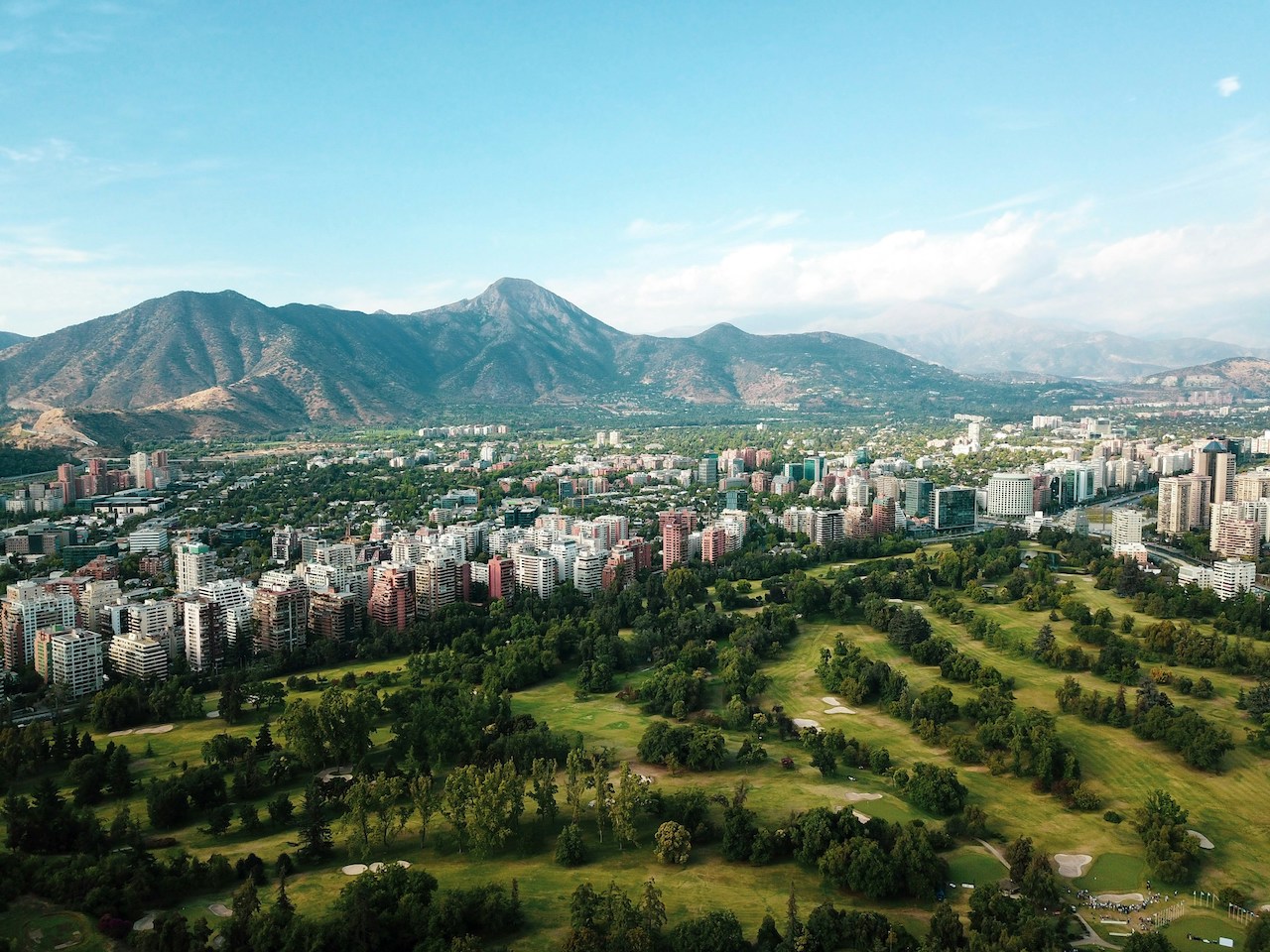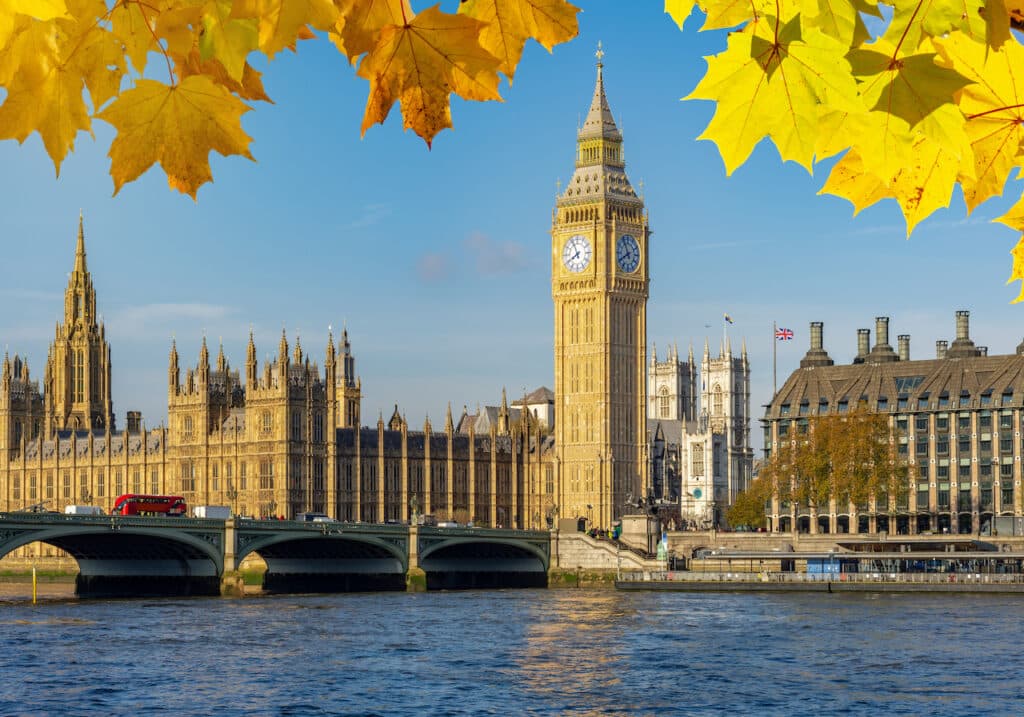For Americans living in Chile, understanding tax obligations is crucial to avoid double taxation and ensure compliance with both U.S. and Chilean laws. This guide provides an overview of key tax considerations, including residency status, income tax rates, and available exclusions and credits. By staying informed, you can navigate the complexities of international taxation with confidence.
Snapshot of expat life in Chile
- Primary tax forms: Form 1040 (U.S.), Form 22 (Chile)
- Tax year: Calendar year (January 1 – December 31)
- Tax deadline: April 15 (U.S.), April 30 (Chile)
- Currency: Chilean Peso (CLP)
- Population: Approximately 19 million
- Number of Americans living in Chile: Approximately 12,000
- Capital city: Santiago
- Primary language: Spanish
- Tax treaty: Yes, effective December 19, 2023
- Totalization agreement: Signed in 2018, but not yet effective or in force.
By staying informed about these aspects, you can navigate the complexities of international taxation with confidence.
Americans living in Chile: Visa types
Navigating the visa options for permanent residency in Chile can be complex. Below, we’ve outlined key visa types tailored for U.S. citizens seeking to make Chile their long-term home.
Retirement and periodic income visa
Who it’s for: Individuals with a stable source of passive income, such as pensions, rental income, or dividends.
Overview: This visa is ideal for those who can demonstrate regular income sufficient to support themselves and any dependents in Chile. It allows for an initial temporary residency, which can lead to permanent residency after meeting specific criteria.
Requirements:
- Proof of consistent passive income, typically between $1,000 and $1,500 per month for the principal applicant, with additional amounts for dependents.
- Valid passport.
- Background check from the applicant’s country of origin.
- Health insurance coverage.
After one year of temporary residency and fulfilling residency requirements, applicants may apply for permanent residency.
Investor visa
Who it’s for: Entrepreneurs and investors intending to make a significant financial investment in Chile.
Overview: Designed for individuals who plan to invest in Chilean businesses or establish new enterprises, this visa offers a pathway to residency for those contributing to the local economy.
Requirements:
- Minimum investment of $500,000 in a Chilean business or project.
- Detailed business plan outlining the investment’s purpose and economic impact.
- Proof of funds and financial stability.
- Valid passport.
- Background check from the applicant’s country of origin.
After two years of holding a temporary residence permit under this visa, individuals can apply for permanent residency, provided they maintain their investment and meet residency requirements.
Professional visa
Who it’s for: Individuals with a recognized professional degree and a job offer from a Chilean employer.
Overview: This visa caters to professionals seeking employment in Chile. It requires a non-binding job offer and is suitable for those with qualifications in demand within the Chilean labor market.
Requirements:
- Recognized professional degree.
- Non-binding job offer from a Chilean company.
- Proof of financial means to support oneself.
- Valid passport.
- Background check from the applicant’s country of origin.
Applicants must declare taxes for at least nine months before applying for permanent residency after one year.
Each of these visas offers a unique pathway to making Chile your permanent home. It’s essential to assess your personal circumstances and choose the option that aligns best with your professional and financial situation.
How to apply for a Chilean visa as a U.S. citizen
Applying for a Chilean visa as an American requires several clear steps. Here’s a straightforward guide to help you through the process.
1. Choose your visa type
Identify the visa that best fits your situation—retirement and periodic income, investor, or professional visa. Review each option’s eligibility and documentation requirements.
2. Gather your documents
You’ll typically need:
- A valid U.S. passport
- Background check from the U.S.
- Proof of income, investment, or job offer (depending on visa type)
- Health insurance coverage
- Recognized degree, if applying for a professional visa
3. Complete the online application
Visit the Chilean Department of Immigration’s website and fill out the application form. Upload all required documents in the specified format.
4. Submit your application
Submit your application online. Double-check that all information is accurate and documents are clear and complete.
5. Pay the application fee
Pay the visa fee as instructed by the system. Fees vary by visa type.
6. Attend an interview or biometric appointment (if required)
You may be asked to attend an interview at the Chilean consulate or provide biometrics.
7. Wait for a decision
Track your application status online. Once approved, follow the instructions to finalize your visa and entry into Chile.
Healthcare options for Americans living in Chile
Navigating healthcare in a new country is one of the biggest concerns for Americans living in Chile. Understanding how the system works—and what choices you have—can help you feel more confident about caring for your health abroad.
How Chile’s healthcare system works
Chile offers a mixed healthcare system, combining both public and private options:
- Public system (FONASA): Funded by payroll taxes and government support. Most Chileans use this system, which provides access to public hospitals and clinics.
- Private system (ISAPRE): If you prefer, you can pay into a private insurance plan (ISAPRE), which gives you access to private clinics and hospitals, often with shorter wait times and more amenities.
Both systems are regulated by the government, and quality of care is generally high, especially in major cities.
Healthcare options for Americans living in Chile
As an American expat, you have several pathways to get healthcare coverage:
- Enroll in FONASA: If you’re a resident with a local job, contributions may be deducted from your salary, making you eligible for public healthcare.
- Purchase ISAPRE private insurance: You can opt for private coverage, which is popular among expats looking for English-speaking providers or more flexibility in choosing doctors and facilities.
- International health insurance: Some Americans choose to keep a global insurance plan, especially if they travel frequently or want coverage outside Chile.
- Out-of-pocket care: Healthcare costs in Chile are generally lower than in the U.S., so paying directly for routine care is an option, though emergency or complex care can add up.
Pros and cons of healthcare for American expats in Chile
Pros:
- High-quality care, especially in urban centers
- Costs are typically much lower than in the U.S.
- Multiple options (public, private, international)
Cons:
- Public system can mean longer wait times and less English spoken
- Private insurance premiums may rise with age or pre-existing conditions
- Some rural areas may have limited facilities compared to U.S. standards
By understanding your choices, you can make informed decisions that suit your health needs while living in Chile.
Cost of living for American expats in Chile
Adjusting to the cost of living in Chile is a common concern for Americans moving abroad. While you’ll likely find many things more affordable than back home, some prices may surprise you—especially if you’re used to U.S. standards or specific products.
Here’s a side-by-side look at key expenses to help you set realistic expectations and plan your budget:
| Expense | Average in Chile (USD) | Average in U.S. (USD) | Notes/Comparison |
| Groceries | $250–$350/month | $400–$600/month | Local produce and staples are cheaper; U.S. brands cost more. |
| Housing (1BR apt, city center) | $500–$800/month | $1,200–$2,000/month | Santiago is pricier, but still less than most U.S. cities. |
| Transport (public transit/monthly pass) | $40–$55 | $70–$100 | Reliable in cities; car ownership is less common in Chile. |
| Phone plan (unlimited data) | $15–$25/month | $50–$80/month | SIM cards and plans are affordable and easy to obtain. |
All costs are estimates for 2024 and can vary by city and lifestyle.
Pros
- Lower cost of living in most areas, especially for housing and daily needs.
- Healthcare and insurance are much more affordable than in the U.S.
- Public transportation is efficient and budget-friendly in major cities.
- Dining out and fresh produce are inexpensive, making it easy to enjoy local food culture.
Cons
- Imported goods (especially U.S. brands or specialty items) can be expensive.
- Salaries are typically lower than in the U.S., which may affect your overall budget if you’re earning locally.
- Housing standards may differ—smaller spaces, less insulation, and fewer amenities than you might expect in the U.S.
- Utilities like electricity and internet can be costlier relative to average salaries, especially in rural areas.
- Language barriers can make negotiating contracts or shopping for deals more challenging if you’re not fluent in Spanish.
By knowing what to expect, you’ll be better equipped to manage your finances and embrace the benefits—and quirks—of expat life in Chile.
Where do American expats tend to live in Chile?
While you’ll find Americans throughout Chile, a few cities and regions consistently attract the largest expat communities:
- Santiago: As Chile’s bustling capital and economic hub, Santiago draws the majority of American expats. Here, you’ll find international schools, English-speaking services, and vibrant neighborhoods like Providencia and Las Condes that offer a familiar urban feel.
- Valparaíso and Viña del Mar: These neighboring coastal cities are popular for their artsy vibe, historic architecture, and ocean views. Americans often appreciate the laid-back lifestyle and active expat social scene.
- La Serena: Known for its relaxed pace and beautiful beaches, La Serena attracts retirees and families looking for a quieter, more affordable alternative to the capital.
- Pucón and the Lake District: If you’re drawn to outdoor adventure and natural beauty, towns like Pucón offer hiking, skiing, and a close-knit expat community—ideal for those who want a more rural lifestyle with plenty of activities.
Tax implications for Americans living in Chile
Navigating taxes as an American living in Chile can feel like a maze—especially when you’re balancing U.S. requirements with local rules. We’re here to help you confidently manage your obligations, avoid surprises, and make smart decisions for your financial future.
American expats’ tax obligations
Let’s break down the key tax responsibilities and opportunities you need to know about as an American in Chile.
Filing U.S. tax returns
Even if you’ve made Chile your home, the IRS still expects you to file a U.S. tax return every year if you meet the minimum income threshold. It doesn’t matter where you live or where your income comes from—U.S. citizenship comes with ongoing tax filing obligations.
- What does this mean for you? You’ll need to report your worldwide income, including earnings from Chilean employers, self-employment, or investments.
- Filing deadlines: The normal deadline is April 15, but living abroad gets you an automatic extension to June 15. You can also request a further extension to October if you need more time.
- Why it matters: Missing U.S. tax filings can lead to penalties, interest, and potential headaches down the road—even if you don’t owe any U.S. tax after credits and exclusions.
Chilean taxes
If you’re a tax resident in Chile (generally after living there for more than 183 days in a year), you’ll need to file and pay Chilean taxes on your worldwide income. Chile’s tax year matches the calendar year, and tax rules can differ significantly from those in the U.S.
- Dual filing: You may find yourself filing in both countries, but there are ways to avoid double taxation.
- Local nuances: Chilean tax rates, deductions, and reporting requirements can be quite different from what you’re used to in the U.S.
Foreign Earned Income Exclusion (FEIE)
The Foreign Earned Income Exclusion lets you exclude up to $130,000 of foreign-earned income (for tax year 2025; this amount adjusts annually) from your U.S. taxable income if you qualify.
- How do you qualify? You’ll need to pass either the Bona Fide Residence Test (proving you’ve made Chile your main home) or the Physical Presence Test (spending at least 330 days abroad in a 12-month period).
- What’s excluded? Only earned income (like wages or self-employment) qualifies, not investment or rental income.
- Why use it? The FEIE can dramatically reduce or even eliminate your U.S. tax bill, but you still have to file your return to claim it.
Foreign Tax Credit (FTC)
If you’re paying taxes to Chile on your income, the Foreign Tax Credit helps you avoid double taxation by letting you offset your U.S. tax liability dollar-for-dollar with the taxes you’ve paid in Chile.
- Key points: You can use the FTC for income that doesn’t qualify for the FEIE, or in combination with it to cover income above the exclusion limit.
- Paperwork required: You’ll need to submit IRS Form 1116 and keep records of taxes paid in Chile.
- Benefit: This is one of the most effective tools to ensure you’re not taxed twice on the same income.
Tax treaty between the U.S. and Chile
The U.S. and Chile have negotiated a tax treaty, which provides important clarifications on which country has taxing rights over certain types of income (like pensions or dividends).
- Current situation: Until the treaty is active, you’ll rely on existing U.S. tax provisions (like the FEIE and FTC) for relief.
- Stay updated: Tax treaties can affect everything from retirement income to student loans, so keep an eye on developments.
Reporting foreign bank accounts (FBAR & FATCA)
Americans living in Chile must report foreign financial accounts if their total value exceeds certain thresholds:
- FBAR (FinCEN Form 114): Required if your foreign financial accounts total over $10,000 at any point during the year.
- FATCA (Form 8938): This kicks in at higher thresholds—generally $200,000 or more for single filers living abroad.
- Why it matters: Failing to report foreign accounts can lead to steep IRS penalties—even if your accounts are completely legal and tax-compliant.
Social Security
If you’re working in Chile, your U.S. social security situation depends on your employment status and how long you’ve been abroad.
- Totalization agreement: The U.S. and Chile have signed a Social Security totalization agreement, but as of June 2025, it is not yet in effect. Therefore, Americans working in Chile (and vice versa) may be subject to double social security taxation until the agreement is active.
- U.S. Social Security benefits: If you’ve earned enough credits, you can usually claim U.S. Social Security while living in Chile, but you’ll want to understand how Chilean taxes may apply.
- Planning tip: If you’re close to retirement age or splitting your career between both countries, it’s worth seeking expert advice to maximize your benefits and avoid double contributions.
Understanding these obligations is the first step towards staying compliant and making the most of your expat experience in Chile. If you ever feel unsure, remember—expat tax specialists like us at Bright!Tax are here to help you navigate every step with clarity and confidence.
Ready to take the next step? Don’t let uncertainty hold you back—reach out to our team today for expert guidance and personalized support. Let us help you navigate your journey with confidence!
Frequently Asked Questions
-
Do Americans living in Chile still have to file U.S. taxes?
Yes, as an American expat in Chile, you are still required to file an annual U.S. tax return and report your worldwide income, even if you also pay Chilean taxes. The IRS expects all U.S. citizens to stay compliant, no matter where you live.
-
How can Americans in Chile avoid double taxation?
You can use the Foreign Earned Income Exclusion (FEIE) and the Foreign Tax Credit (FTC) to reduce or eliminate your U.S. tax bill on income that’s already taxed in Chile. These tools are designed to prevent you from paying tax on the same income twice.
-
What financial accounts do Americans in Chile need to report?
If the total value of your foreign bank accounts exceeds $10,000 at any point during the year, you’ll need to file an FBAR (FinCEN Form 114). For larger holdings, Form 8938 under FATCA may also apply. Keeping up with these requirements is essential to avoid IRS penalties.
-
Do Americans working in Chile pay into both U.S. and Chilean Social Security systems?
With no Social Security totalization agreement between the U.S. and Chile, you may be required to contribute to both systems if you’re self-employed. Employment with a local company in Chile generally means you only pay into the Chilean system, but it’s important to review your specific situation.

 Connect on LinkedIn
Connect on LinkedIn

